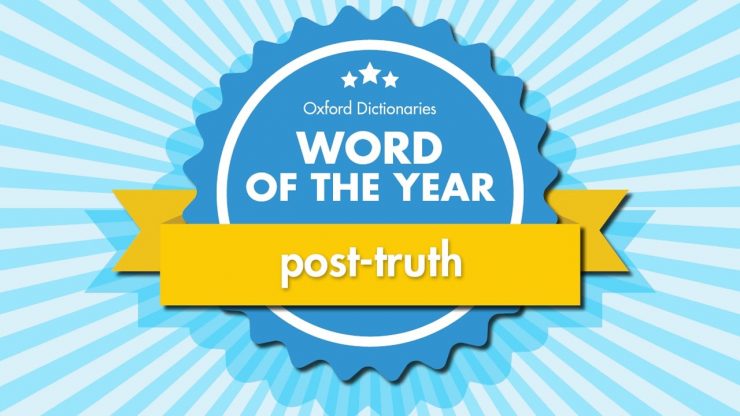This post is part of the Countdown to Conference (C2C) series. We would love to feature a brief blog post from you too! Visit our main Countdown to Conference page for details!
A Prelude to:
“Something Resembling ‘Truth’: Reflections on Critical Pedagogy in the New ‘Post-Truth’ Landscape”
By Professor Sondra Hale
Let’s start with this absurdity: “Truth isn’t truth” (Rudolph Giuliani, Trump’s lawyer in a TV interview August 19, 2018) and continue with the claim that there are “alternative facts,” an expression coined by Kellyanne Conway, one of Trump’s media guardians, to justify some of Trump’s lies. On February 27th this year, columnist David Brooks lamented in the “New York Times” that one of the university students he had interviewed claimed that “We don’t even have a common truth. A common set of facts….” Time magazine asked on its April, 2017 cover, “Is Truth Dead?” What’s going on?
When I was invited to present one of the keynote presentations for the GEA conference in Newcastle this year, I was intrigued by one word in the conference theme that I had never worked with—“Post-truth” (PT). The Oxford English Dictionary proclaimed its 2016 Word of the Year “Post-Truth,” and defined it as “denoting circumstances in which objective facts are less influential in shaping public opinion than appeals to emotion and personal belief.” I thought that examining the new fashionable term PT would give me a chance to delve into the concept of “truth,” which I had rarely done before in my writings or teaching. When I did mention “truth,” I always focused my attention on deconstructing such absolutes. However, during this period of right-wing populism I could not think of a more timely concept to discuss, considering all of the political discussions around a U.S. president shown to lie with impunity.
I began by thinking that laying out ideas about truth and post-truth would be a rather simple exercise, after which I could then proceed to discuss gender, pedagogy, Freire, and what to do with or think about social media. Not so quickly. I had had no idea how many media pundits, academics, politicians, and members of the public were discussing truth, facts, or lack thereof. Everyone, it seemed, had been getting into the act—all the way from the highly noted late historian Hayden White who in the 1970s saw history as a series of stories. He argued that historical meaning is imposed on historical facts through storytelling. Others, such Marian David in the Stanford Encyclopedia of Philosophy defined truth in tautological terms, e.g., To David, truth broadly refers to “any view explicitly embracing the idea that truth consists in a relation to reality….”
When I delved into the literature more—both popular and academic—I realized how questions around truth and fact were rampant. Fear and alarm were palpable. But I also began to realize that applying postmodern/postcolonial jargon about such absolutes as truth, legitimacy, authenticity, and universalism might result in a backlash against notions that truth, for example, can be flexible, relative, and negotiable. Or, to use the ideas of Homi Bhabha, truth might be ambivalent. Strong statements awaited me, lest I attempt to dilute these absolutes. Former “New York Times” book critic Michiko Kakutani in a new book, The Death of Truth: Notes on Falsehood in the Age of Trump, puts the blame at the feet of postmodernists and deconstructionists because, according to her, “The postmodernist argument that all truths are partial…led to the argument that there are many legitimate ways to understand or represent an event.” She angrily claims that postmodernism and its relatives have been co-opted by the dark forces on the right. Oops, just as I was about to posit that truth is negotiable!
Dramatic arguments reflect the fear and alarm I mentioned above. Timothy Snyder in On Tyranny: Twenty Lessons from the Twentieth Century (2017) reminds us that “To abandon facts is to abandon freedom. If nothing is true, then no one can criticize power because there is no basis upon which to do so. If nothing is true, then all is spectacle.”
It seemed wise of me to tread lighter than I am known to do. A good start was to title my keynote talk “Something Resembling “Truth”: Reflections on Critical Pedagogy in the New ‘Post-Truth’ Landscape,” borrowing the part before the colon from the title of a new show by Jaspar Johns. I then felt comfortable arguing for Freirian and feminist pedagogies as among the tools to encounter untruths and post-truths in the age of Trump.
Los Angeles, September, 2018
If you are attending conference, let us know on Twitter using the hashtag: #GEAconf2018

